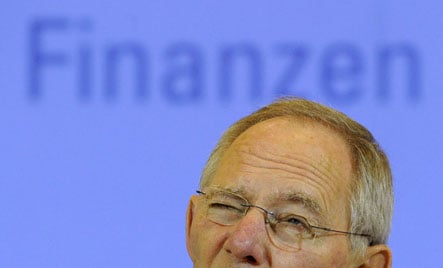The deficit includes a shortfall generated by the federal government as well as Germany’s 16 states and thousands of municipalities.
By itself, the federal deficit will amount to more than €100 billion, compared with €60 billion this year, a result of massive government spending to pull Europe’s biggest economy out of a historic post-war recession.
The new centre-right government in place since October has favoured stimulus measures such as tax cuts to keep an uneven recovery on track, even if it means letting the massive deficit climb higher. And the forecast by German authorities pales in comparison with one by Greek officials who expect a public deficit of more than 12 percent of GDP this year.
Germany finds itself roughly in the middle of the European Union’s 27 members and its long-term debt retained Wednesday a top rating of “AAA” from Standard and Poor’s, which welcomed Berlin’s “fiscal consolidation and spending discipline.”
In 2010 however, German spending is expected to increase by more then 10 percent from its level this year, while revenues are forecast to decline by seven percent.
Germany’s overall debt is estimated to reach 78 percent of GDP meanwhile, way above a 60 percent limit laid down in the European Union’s Stability and Growth Pact.
The pact sets the public deficit ceiling at no more than three percent of GDP and says governments should work towards a balance in times of economic growth.
Schäuble has pledged to do all he can to respect the Stability Pact’s terms again by 2013. Berlin is counting on renewed growth to generate jobs and tax revenues that would replenish the public coffers.



 Please whitelist us to continue reading.
Please whitelist us to continue reading.
Member comments